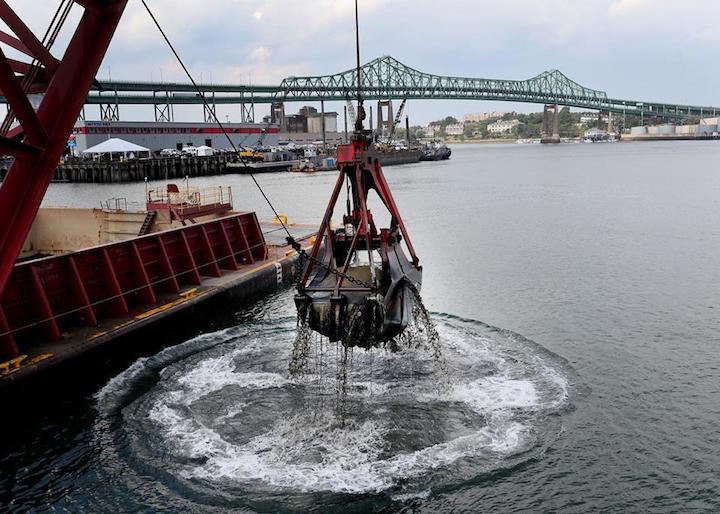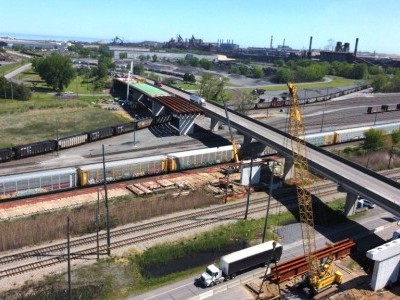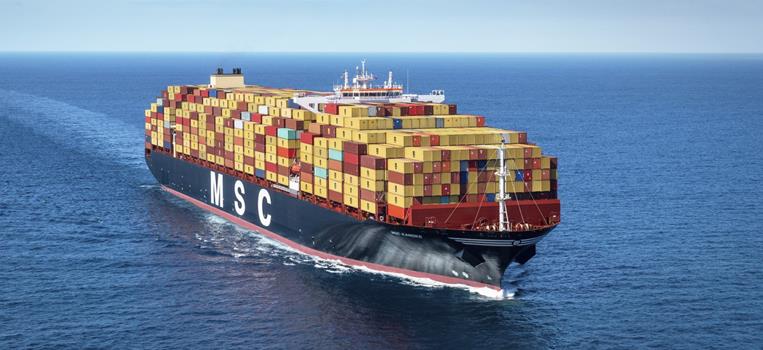Phase Two of the Boston Harbor Dredging Project complete
Dec 07, 2020The United States Army Corps of Engineers and Massachusetts Port Authority (Massport) have announced that Phase II of the Boston Harbor Dredging Project is complete and ahead of schedule by nearly one full year. The U.S. Army Corps of Engineers, partnering with Cashman Dredging Inc. and Dutra Group, have worked 365 days a year, 24 hours a day, since July 2018 to complete this second of three deepening contracts to deepen the Harbor.
The project is a $350 million partnership between the U.S. Army Corps of Engineers, the Commonwealth of Massachusetts, and Massport. The first contract, maintenance dredging of the inner harbor and construction of a Confined Aquatic Disposal cell, was completed in December of 2017. The current and second contract, deepening of the main ship channels, began in July 2018 to accommodate the large container vessels calling today and in the future. The third and final contract, which will remove hard rock to complete the deepening, is scheduled to be awarded in January 2021.

“We look forward to awarding the final phase of the Boston Harbor Deepening Project,” said Col. John A. Atilano II, Commander, U.S. Army Corps of Engineers, New England District. “Our partnership with Massport and all of our stakeholders has made this project a success to date, allowing us to start the final phase almost a year ahead of schedule. The ability for larger vessels to call on Boston is critical to New England’s economy and supports USACE’s core navigation mission.”
Through this project’s second phase, the crews were deepening the Outer Harbor Channel, from 40 to 51 feet; the Main Shipping Channel, from 40 to 47 feet; and the Reserve Channel, where Conley Container Terminal is located, from 40 to 47 feet. Additionally, the Army Corps was able to contribute to expanding the Harbor’s Turning Basin to 1,725 feet, which is essential to welcome larger ships. Currently, Conley is able to handle ships carrying 10,000 TEUs (twenty-foot equivalent units) - this project will allow Conley to handle up to 12-14,000 TEU vessels.
Conley Terminal is the only full-service container terminal in New England. The dredging of Boston Harbor is essential so that larger container ships can call Conley Terminal and the port can continue to support the region’s importers and exporters. Some of the items that come through the working port include furniture, home goods, clothing and shoes, wine and spirits, heating oil for our homes and the salt to treat the roads during the winter. During the pandemic, shipments of essential PPE have also come through Conley.
“This project is as an investment in the Port of Boston’s future so that New England businesses can continue to compete in the global marketplace, and we are thrilled that it is nearing completion,” said Massport Port Director Mike Meyran. “Our local, state and federal partners understand the importance of the working port and we thank them for helping to fund this project and others. That hard work is paying dividends - shipping companies are choosing Boston because we have made such significant efforts to improve the Port.”
Conley has been on a steady growth path to become big ship ready, which is necessary to remain competitive with other East Coast ports. This helps keep jobs in Boston, lowers transportation costs for consumers, and is better for environment with fewer trucks clogging the nation’s highways.
The multi-phase dredging project supports continued growth at Conley Terminal. Overall, the Port of Boston generates $8.2 billion in economic activity, supports 9,000 direct jobs and services exports and imports for 2,500 businesses across New England.
Massport has made improving Conley a top priority and has ordered three new ship-to-shore cranes, with a lifting height of 160 feet and an outreach of 22 containers wide that will be delivered in 2021. In addition to the new ship-to-shore cranes, Conley Terminal improvements include the construction of two 50-foot berths, expanded reefer storage, and new in-and-out gate facilities. These critical infrastructure projects will enable Conley Terminal to more efficiently and effectively service the large vessels calling the Port of Boston today, and the bigger ships that will call in the future.
Similar Stories

Jeffersonville port delivers record road salt shipments to Greater Louisville area during recent winter storms
View ArticleNC Ports Notice: Holiday Schedule Notice Martin Luther King Jr. Day
The Port of Wilmington Container Gate (South Gate) and the Charlotte Inland Port (CIP) will operate on a reduced schedule on Monday, January 20: 8 AM-12 PM and 1 PM-5…
View Article
Port of Long Beach’s Cordero hails ‘Green Port’ achievements
View ArticleWorld Shipping Council: Shipping carriers move to prevent deadly charcoal fires
The shipping industry is taking proactive steps to implement improved safety measures for transporting charcoal, ahead of mandatory IMO regulations in 2026.
View Article
MSC Announcement: GRI - General Rate Increase Feb 2025
View Article
Drewry’s World Container Index - 16 Jan
View ArticleGet the most up-to-date trending news!
SubscribeIndustry updates and weekly newsletter direct to your inbox!





